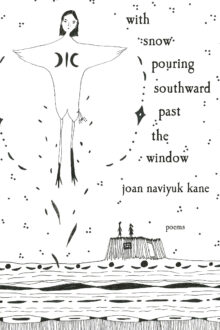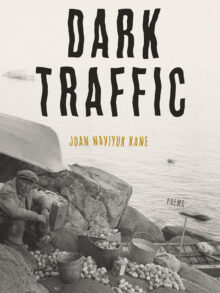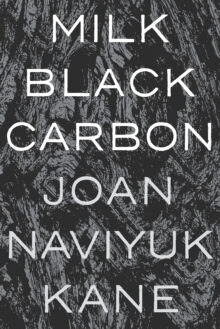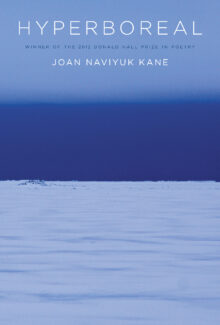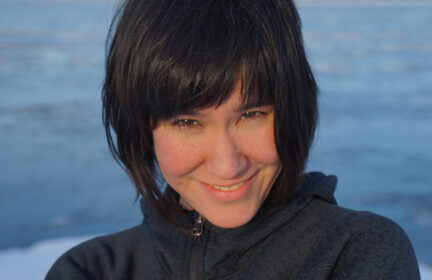
Joan Naviyuk Kane
Joan Naviyuk Kane is the author of the poetry collections The Cormorant Hunter’s Wife, Hyperboreal, Milk Black Carbon, and Dark Traffic. Her edited volumes include The Griffin Poetry Prize 2017 Anthology and Circumpolar Connections: Creative Indigenous Geographies of the Arctic. A Guggenheim Fellow, Radcliffe Fellow, Native Arts and Cultures Foundation National Artist Fellow, Whiting Award winner, and Paul Engle Prize recipient, she’s a 2025 United States Artists Fellow based in Oregon, where she’s an associate professor at Reed College.
with snow pouring southward past the window
Poems
Included in LitHub’s Most Anticipated Poetry of 2026
The poems in with snow pouring southward past the window turn with and for relatives and beloveds across seas and oceans, continents and nations, languages and histories. In this collection, public and personal archives work with literary translations across several dialects of the Inupiaq language, and re-complexify Arctics at a time when empires once again seem interested in flattening and erasing millennia of Indigenous inhabitation, care, and situatedness. It was written between Massachusetts, Inuit Nunaat, Sápmi, the “Old World” and through waves of overlapping pandemics, political and social exigencies, and solidarities.
Dark Traffic
Poems
Finalist, 2023 Kingsley Tufts Poetry Award
Dark Traffic creates landmarks through language, by which its speakers begin to describe traumas in order to survive and move through them. With fine detail and observation, these poems work in some way like poetic weirs: readers of Kane’s work will see the arctic and subarctic, but also, more broadly, America, and the exigencies of motherhood, indigenous experience, feminism, and climate crises alongside the near-necropastoral of misogyny, violence, and systemic failures. These contexts catch the voice of the poems’ speakers, and we perceive the currents they create.
Milk Black Carbon
Milk Black Carbon works against the narratives of dispossession and survival that mark the contemporary experience of many indigenous people, and Inuit in particular. In this collection, autobiographical details – motherhood, marriage, extended family and its geographical context in the rapidly changing arctic – negotiate arbitrary landscapes of our perplexing frontiers through fragmentation and interpretation of conventional lyric expectations.
Hyperboreal
Winner of the 2012 Donald Hall Prize in Poetry
Selected by Arthur Sze
Hyperboreal originates from diasporas. It attempts to make sense of change and to prepare for cultural, climate, and political turns that are sure to continue. The poems originate from the hope that our lives may be enriched by the expression of and reflection on the cultural strengths inherent to indigenous culture. It concerns King Island, the ancestral home of the author’s family until the federal government’s Bureau of Indian Affairs forcibly and permanently relocated its residents. The poems work towards the assembly of an identity, both collective and singular, that is capable of looking forward from the recollection and impact of an entire community’s relocation to distant and arbitrary urban centers. Through language, Hyperboreal grants forum to issues of displacement, lack of access to traditional lands and resources and loss of family that King Island people—and all Inuit—are contending with.

